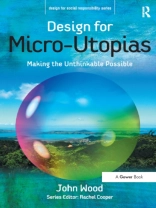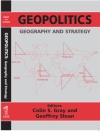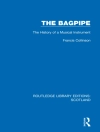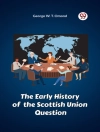Everyone is already painfully aware of our predicament – ecological extinctions, dwindling fossil fuel reserves and economic chaos. The solutions are less obvious, despite the many opportunities that surround us. We have never had more access to resources, knowledge and technology but this is not the problem. What we lack most is creative thinking, fuelled by collective optimism. In a pragmatic world run by careerist experts this is hardly surprising. As voters and consumers we are trained to choose and complain, but not how to envisage what we really, really want. How can we design a better world unless we revive the art of dreaming? For without dreams we are lost. Perhaps it should be the duty of all citizens to imagine alternative futures; in effect, to think more like designers. After all, designers have always been dreamers, and have often found ways to realize their dreams. Design for Micro-Utopias does not advocate a single, monolithic Utopia. Rather, it invites readers to embrace a more pluralized and mercurial version of Thomas More’s famous 1516 novel of the same name. It therefore encourages the proliferation of many ‘micro-utopias’ rather than one ‘Utopia’. This requires a less negative, critical and rational approach. Referencing a wide range of philosophical thinking from Aristotle to the present day, western and eastern spiritual ideals, and scientific, biological and systems theory, John Wood offers remedies for our excessively individualistic, mechanistic and disconnected thinking, and asks whether a metadesign approach might bring about a new mode of governance. This is a daring idea. Ultimately, he reminds us that if we believe that we will never be able to design miracles we make it more likely that this is so. The first step is to turn the ‘impossible’ into the ‘thinkable’.
John Wood
Design for Micro-Utopias [PDF ebook]
Making the Unthinkable Possible
Design for Micro-Utopias [PDF ebook]
Making the Unthinkable Possible
Buy this ebook and get 1 more FREE!
Language English ● Format PDF ● Pages 226 ● ISBN 9781351945202 ● Publisher Taylor and Francis ● Published 2017 ● Downloadable 3 times ● Currency EUR ● ID 5335516 ● Copy protection Adobe DRM
Requires a DRM capable ebook reader












